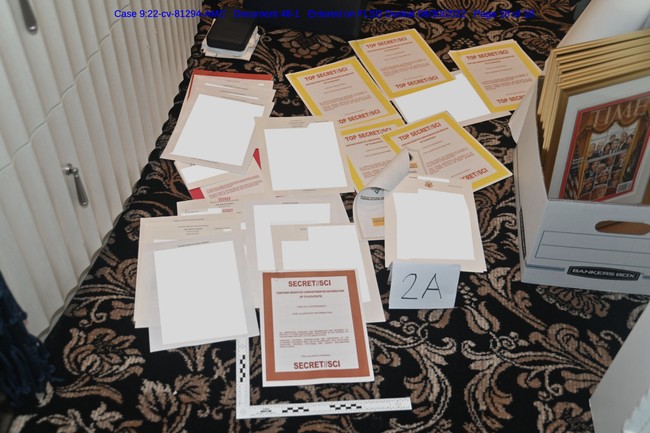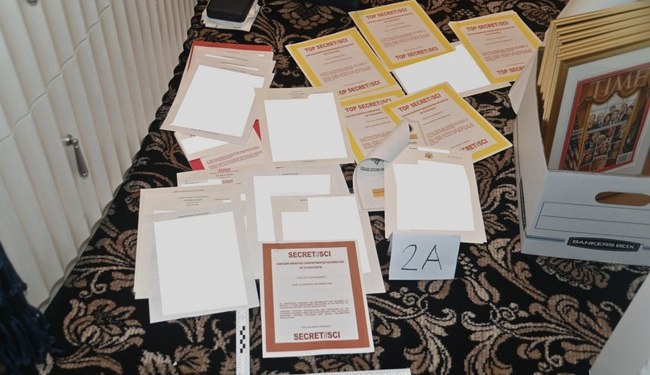
On Tuesday, U.S. District Court Judge Aileen Cannon indefinitely postponed Trump’s classified documents trial.
“The Court also determines that finalization of a trial date at this juncture—before resolution of the myriad and interconnected pre-trial and CIPA issues remaining and forthcoming—would be imprudent and inconsistent with the Court’s duty to fully and fairly consider the various pending pre-trial motions before the Court, critical CIPA issues, and additional pretrial and trial preparations necessary to present this case to a jury,” Judge Cannon wrote.
“The Court therefore vacates the current May 20, 2024, trial date (and associated calendar call), to be reset by separate order following resolution of the matters before the Court, consistent with Defendants’ right to due process and the public’s interest in the fair and efficient administration of justice.”
Special Counsel Jack Smith’s classified documents case against former President Donald Trump has been on shaky ground lately. On Friday, Smith’s team admitted to misleading Cannon and tampering with the evidence that had been used as the basis for his case against Trump.
Last month, Cannon unsealed a trove of new documents in the case that also revealed that an FBI agent had testified that the General Services Administration (GSA) was in possession of Trump’s boxes in Virginia before ordering Trump’s team to come get them. The same boxes that the GSA had been holding and ordered Trump’s team to retrieve ended up being the boxes that contained classified markings, raising questions about whether the Biden administration had set up Trump.
“So an entire pallet full of boxes that had been held by GSA somewhere outside of DC is dumped at Mar-a-Lago,” independent journalist Julie Kelly noted. “Apparently these are the boxes that ended up containing papers with ‘classified markings.'”
The Supreme Court also heard oral arguments over Trump’s claims to presidential immunity, which may affect this cause.
Related: Jack Smith’s Case Against Trump Appears to Be Falling Apart
Cannon’s decision is a major win for President Trump, who has repeatedly sought to delay the case until after the presidential election in November. In early April, Cannon rejected Trump’s previous attempt to dismiss the case, which he based on the argument that the documents found at his estate were personal records. Trump had filed multiple motions for dismissal back in February, employing various arguments, such as asserting presidential immunity and questioning the legitimacy of Smith’s appointment.
Meanwhile, Joe Biden had classified information that he was never entitled to have stored in boxes in his garage for years but was not charged. In February Special Counsel Robert Hur’s report concluded that Biden “willfully retained and disclosed classified materials after his vice presidency when he was a private citizen” and that his actions “present[ed] serious risks to national security.” However, Hur wouldn’t bring charges against him because Biden “would likely present himself to a jury, as he did during our interview of him, as a sympathetic, well-meaning, elderly man with a poor memory.”
Because of this, Hur concluded it would be “difficult to convince a jury that they should convict him […] of a serious felony that requires a mental state of willfulness.” Hur found that Biden’s memory was “significantly limited, both during his recorded interviews with the ghostwriter in 2017 and in his interview with our office in 2023” and that he couldn’t remember the years he was vice president or when his son Beau died.

